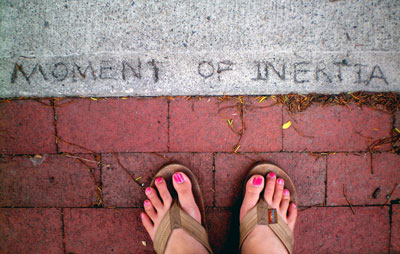All Nonfiction
- Bullying
- Books
- Academic
- Author Interviews
- Celebrity interviews
- College Articles
- College Essays
- Educator of the Year
- Heroes
- Interviews
- Memoir
- Personal Experience
- Sports
- Travel & Culture
All Opinions
- Bullying
- Current Events / Politics
- Discrimination
- Drugs / Alcohol / Smoking
- Entertainment / Celebrities
- Environment
- Love / Relationships
- Movies / Music / TV
- Pop Culture / Trends
- School / College
- Social Issues / Civics
- Spirituality / Religion
- Sports / Hobbies
All Hot Topics
- Bullying
- Community Service
- Environment
- Health
- Letters to the Editor
- Pride & Prejudice
- What Matters
- Back
Summer Guide
- Program Links
- Program Reviews
- Back
College Guide
- College Links
- College Reviews
- College Essays
- College Articles
- Back
Social Media's Negative Affects on the Adolescent's Mind
Social media can cause severe damage to an adolescent’s mind. Cyberbullying can cause self-esteem issues, and abhorrent comments can also lead to severe depression, and possibly suicidal thoughts. Because of today's technology, teenagers are more susceptible to the negative attributes of the internet. Social media has many pros and cons. One of the many cons is that the parsimonious comments that people post can cause severe damage, and possibly encourage depressive thoughts in the mind of a minor.
The use of social media reinforces the idea of social circles, or groups in which you belong. Those who would be considered high on the social media social status are those who have the higher amount of followers, or those who get the greatest amount of likes. However, minors of lower status often feel excluded. For example, Snapchat uses the idea of group chats as a way to tangle teenagers into the sticky web of the media. When groups are created, those in the group often form inside jokes, and usually exclude or remove unwanted people from the group, excluding those who would have wanted to be in the chat. Therefore, the difference between the number of online friends creates its own online class standing.
Because of stereotypical and aggressive statements, teenagers who use social media can be susceptible to self-esteem issues. On social media you can comment on others’ posts. These statements can cause those who are victims to become self aware over body weight and one’s general appearance. Negative and off putting statements can draw attention to a certain post or video, and cause others who view this specific image or video to comment negatively. When an adolescent takes a picture, the natural instinct is to look appealing. But photography on social media is different. Pictures on social media tend to be about the positive attributes in your life. The negative effects on one's brain and emotions caused when comparing one's self to other's lives as portrayed on social media, cause feelings such as jealousy to bubble to the top of your concoction of emotions.(1)
Online media effects not only self esteem, but one's emotional state. When one posts an image or video, one like is not always sufficient. Social media causes a constantly changing emotional state. For example, when one sees that their post has 100 likes, they will likely feel a dopamine rush, causing a hormone in your body to trigger, and cause one's emotional state to increase, usually resulting in elation. Dopamine is similar to a reward system. When one receives a like, or positive comment, that triggers your reward center. This can also be triggered by your number of online friends, and amount of time spent on the media. Furthermore, the positivity or negativity of a post that one views can cause their emotions to shift, and also influence the mood of their next post, this phenomenon being named emotional contagion.(2) Because of the constant shift of emotion that social media causes, it can cause people to become confused, and unsure of their general emotional state.
Using social media can damage one's self esteem and pride, and also can cause adolescents to experience depressive episodes in their teenage years. 81 percent of an estimated 324,459,463 people in the US use social media.(3)Because of the addictive attributes and traits of the media, many young adults and teenagrers spend hours at a time on social media, whether spaced out throughout the day or all at once. Though the media is not always bad, the long term affects on one's mind can be far more damaging, and can drastically change one’s time as an adolescent.
(3)
* All products require an annual contract. Prices do not include sales tax (New York residents only). “U.S. Population with a Social Media Profile 2017.” Statista.
(2)
Silva, Clarissa. “Social Media's Impact On Self-Esteem.” The Huffington Post, TheHuffingtonPost.com, 22 Feb. 2017.
“The Impact of Social Media on Emotional Health.” Not-For-Profit Health Insurance, 17 May 2017.

Similar Articles
JOIN THE DISCUSSION
This article has 1 comment.

I am a 13 year old girl who loves writing, acting, singing, dancing, and being wih her friends and famliy.